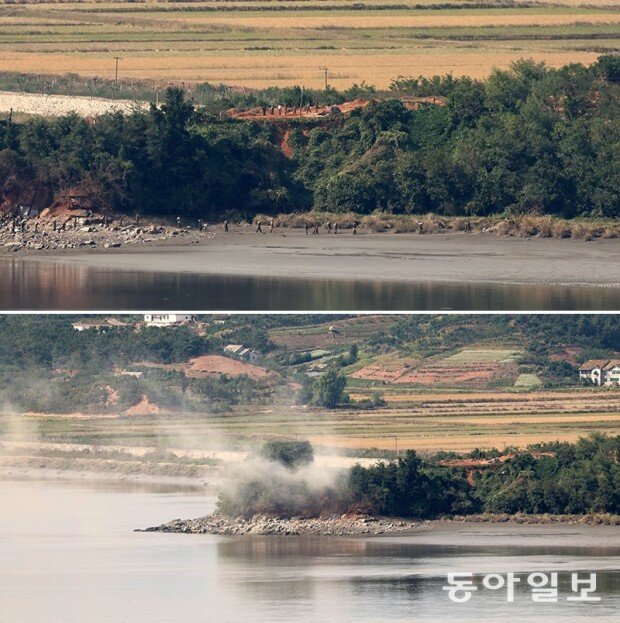N. Korea declares severance of ties with S. Korea by ‘fortifying border
N. Korea declares severance of ties with S. Korea by ‘fortifying border
Posted October. 10, 2024 07:48,
Updated October. 10, 2024 07:48

North Korea unexpectedly on Wednesday announced a “fortifying” initiative to permanently seal its border with South Korea, signaling a complete severance of relations. This follows previous moves to cut roads and railways and install barriers within the Demilitarized Zone (DMZ). North Korea’s latest statement underscores its intent to fully and permanently block all ties with the South. Notably, Pyongyang communicated this decision only to the U.S. military, bypassing South Korean authorities entirely, highlighting its pro-U.S. and anti-South stance. Some analysts suggest that North Korea’s actions may serve as a prelude to engaging with the next U.S. administration, potentially seeking recognition as a nuclear state following the U.S. presidential election on November 5. By positioning itself as a nuclear power, North Korea might aim to enter negotiations from a stance of strength.
A South Korean senior government official cautioned that North Korea might provoke an “accidental” conflict, possibly through the placement of landmines in the DMZ. The South Korean military is monitoring these developments closely, particularly as North Korea readies to launch a military reconnaissance satellite. In response, the Joint Chiefs of Staff issued a stern warning, stating that any North Korean provocation would be met with an overwhelming retaliation, targeting not only the source of the attack but also supporting and command structures.
North Korea’s state media, the Korean Central News Agency, reported that its military would start construction to cut off roads and railways linked to the South and fortify these areas with defensive structures. North Korea stated it notified the U.S. military at 9:45 a.m. on Wednesday to avoid any misunderstandings or accidental skirmishes.
The North claims that this drastic move is a self-defense response to perceived threats, citing South Korean military exercises and the U.S. deployment of nuclear deterrence assets. According to government sources, North Korea appears intent on escalating tensions ahead of the U.S. election, framing its actions as defensive. The South Korean military believes that internal unrest, especially among younger North Korean soldiers, may also be a factor driving the North’s urgency, as anti-regime broadcasts have reportedly resumed.
North Korea amended its constitution during the Supreme People’s Assembly on Monday and Tuesday. As of the latest reports, it has not clarified whether it removed references to “peaceful unification” or introduced new territorial clauses.
Jin-Woo Shin niceshin@donga.com
Headline News
- Joint investigation headquarters asks Yoon to appear at the investigation office
- KDIC colonel: Cable ties and hoods to control NEC staff were prepared
- Results of real estate development diverged by accessibility to Gangnam
- New budget proposal reflecting Trump’s demand rejected
- Son Heung-min scores winning corner kick







